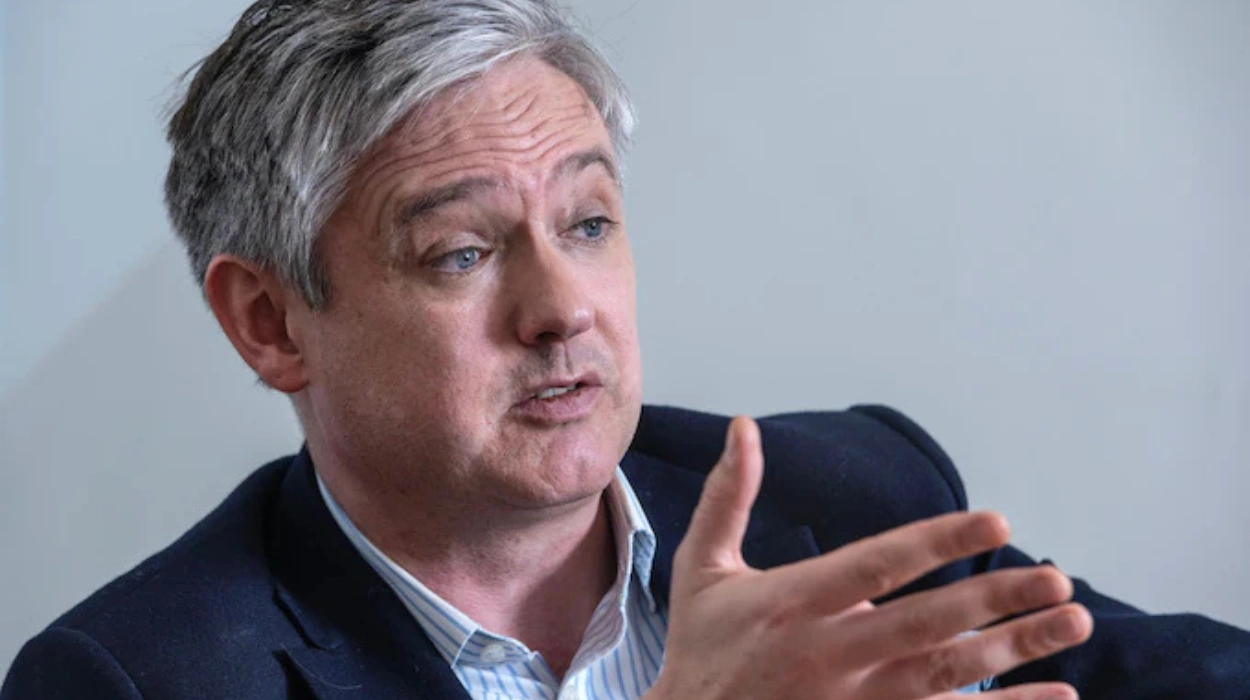UK (Parliament Politics Magazine) – Lord Walney, ex-government adviser on political extremism, warns that Angela Rayner’s proposed Islamophobia definition risks limiting open debate.
Mr Walney held a prominent position in the government, but he was unexpectedly dismissed by some of his closest allies.
What did Lord Walney say about the Islamophobia definition?
Mr Wlany said the deputy PM’s definition of Islamophobia contrasts sharply with the candid approach. He warned it could unintentionally introduce “a blasphemy law by the back door.”
The All-Party Parliamentary Group’s 2018 definition of Islamophobia, adopted by the Labour Party, has been condemned for suppressing genuine debate on the issue.
Mr Walney stated the definition “was produced by well-meaning people that were nevertheless taken down a path by some less well-meaning people into a definition that would curtail discussion”.
He argued that if this definition became law, the government would effectively label the topic off-limits, preventing essential discussions needed for self-protection.
The former adviser stressed that ministers must ‘express more clearly’ their opposition to such laws, highlighting that “we must have the freedom in this country to criticise religion, just as we do with Christianity.”
He stated,
“The Government must re-define what freedom of expression truly means in this country,”
pointing to incidents of individuals being pursued by police for burning the Koran, which he described as a “worrying test case,” adding,
“Burning of sacred religious texts is abhorrent and disrespectful, but it mustn’t be illegal.”
Mr Walnet stated that if any definition were introduced, he would favour the term “Anti-Muslim Hatred” rather than “Islamophobia,” warning that the latter carries “clear unintended consequences.”
He added,
“You have to work that bit harder if you’re going to call this Islamophobia. You’ve got to work that bit harder to make the distinction and to carve out freedom of speech and make sure that you don’t introduce a blasphemy law by the back door.”
Why was the former Labour MP’s adviser role removed?
The former Labour MP and peer, who spent over four years as the Government’s independent adviser on political violence and extremism, was told in February by ex-party colleagues at the Home Office that his position was being dissolved.
He stated,
“I’ve known Yvette [Cooper] and Dan [Jarvis, the security minister] for a long time and count them both as friends and colleagues in the Labour Party. They were pretty open with me. It was clear they were looking to rejig things.”
Mr Walney said,
“The most important thing is not so much whether they wanted to keep me in the role of official adviser but whether they’re going to take my advice. We will see.”
Less than a year after Lord Walney’s report, commissioned by the Tories, proposed stricter protest regulations following years of disruption by environmental groups, pro-Gaza protesters, and far-right campaigners, the decision was made.
What did Lord Walney say after his sacking?
After his dismissal, Mr Walney claimed that Labour’s main issue is its deep attachment to the view of protest. He also criticized ministers for having a “sceptical mindset” when it comes to taking action against disruptive protests.
The former adviser said,
“The Labour Party I grew up in is rooted in protest. While I agree with protecting the right to protest, the line is often drawn in the wrong place.”
Kemi Badenoch’s stance on Angela Rayner’s Islamophobia definition
The Conservative leader, Kemi Badenoch, has warned that the formal definition of Islamophobia may lead to a ‘blasphemy law by the back door.’ She expressed concern that the proposal being led by Angela Rayner could impose rules on Islam and free speech, potentially hindering criticism of religion.
Ms Badenoch added,
“We see many attempts to bring in effective blasphemy laws through the back door. One of them is about creating a formal definition of Islamophobia.”
Definition of Islamophobia proposed by the All-Party Parliamentary Group
It stated, “Islamophobia is rooted in racism and is a type of racism that targets expressions of Muslimness or perceived Muslimness.”
Islamophobia can be seen in public life, media, schools, and religious interactions, but is not limited to the following:
- Justifying harm to Muslims based on racist or extremist views.
- Spreading false, dehumanizing stereotypes about Muslims.
- Blaming all Muslims for the actions of one or a few.
- Accusing Muslims or Muslim states of exaggerating Islamophobia or genocide.
- Applying double standards to Muslims, such as loyalty tests.
- Using Islamophobic symbols to depict Muslims as violent or harmful.


